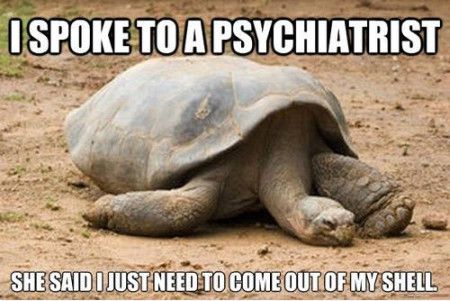Psych is generally regarded as the easiest of all the shelf exams. That doesn’t make studying for it any easier. Here’s how I approached it and what I would have done differently:
Overview: There is always overlap when it comes to clerkship exam content. On the psychiatry shelf you will be tested on neuro, pediatrics, OB/GYN, and some internal medicine along with psychiatry. It’s annoying but it makes sense if you think about it. For instance, if a patient comes in with increasing forgetfulness your differential list can be quite wide. This being your psych shelf you might be anchored to a diagnosis like pseudodementia secondary to depression but you also have to think about Alzheimer’s and hypothyroidism.
Psych Specific Tips: Know the timeline for psychiatric illnesses cold. You need to be able to differentiate brief psychotic disorder from schizophreniform from schizophrenia based on the timeline. And acute stress disorder from post-traumatic stress disorder. And both of those from adjustment disorder. It seems easy and it is. But the diagnostic criteria and various timelines can blend together quite easily when you are taking a two hour hour test and each question has the same differential diagnosis list. Also, psych meds are huge on this test so don’t neglect them.
Resources: First Aid for the Psychiatry Clerkship is gold. It has everything you need for both the clerkship exam and step two. My primary resource when I studied for step two was Master The Boards (MTB) by Conrad Fischer. It provides a good skeleton but leaves you dictating a lot of stuff that isn’t in the book. If you know everything in MTB then you will likely know all the high-yield stuff. But it is entirely comprehensive. That’s why I suggest the First Aid for Psych Clerkship. And as always, UWorld is the gold standard for practice questions.
Practice Questions: As I said, UWorld is the gold standard. Finishing the psych section is doable. I would also attack the neuro section while you’re at it. If you finish all of that then redo all the questions you got wrong. If you finish those questions and want more I would next use PreTest for pysch. PreTest presents a lot of good information that isn’t in any review books (FA, MTB included) or even in UWorld. Granted, some of these questions are beyond low-yield and you should always know the basics inside and out before you delve into the esoteric. That being said, PreTest is a good resource if you’re looking for a couple hundred more new practice questions before test day.
tl; dr: Use First Aid for the Psych Clerkship, annotate Master the Boards, finish the psych and neuro UWorld questions…and basically just know everything.
As always, this isn’t anything groundbreaking but I wish someone told me this when I started psych. Feel free to leave any follow-up questions you may have down below!


